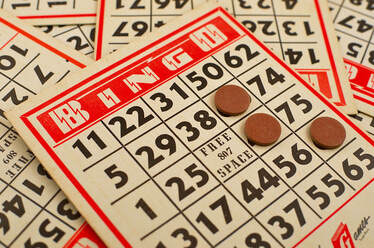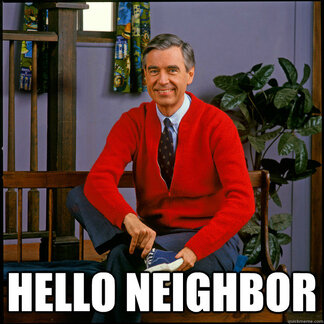all of the selves we Have ever been
|
 A friend of mine lives in a suburban neighborhood where the wildlife is becoming too friendly, some might even say BOLD. Despite repeated attempts to discourage them, the groundhogs have taken up residence underneath decks and porches and the deer walk right up to the front doors and ring the bells. The family pets do little to deter the wildlife, and that includes a pet pig that can moonwalk on command. It appears that the animals have taken up the lives we used to have. My friend spent the first half of the pandemic trying to woo a groundhog out from underneath her back deck and then keep him out. Since I am not sure where all of this is headed, my friend shall remain anonymous. Let’s just call her Q. Q began her interventions by placing a small fence around the groundhog’s front door. To no avail. The groundhog simply dug a bigger hole and went underneath the fence. Next, Q piled small stones around the entrance to the tunnel, but the creature moved the stones to the side, crafted a pair of gargoyles that looked remarkably like my friend, and went on inside. Q thought the natural animal fear of a predator might work. Q got a large plastic owl and placed it at the entrance. The groundhog knocked the owl over, slapped it to the side, and spit on it before regaining entry to its groundhog digs. Giving up on barriers, Q then tried appealing to the groundhog’s senses. Q sprayed the area with ammonia. Again, to no avail. Perhaps, the scent was no worse than the typical smells of a groundhog home. Q also tried sprinkling cayenne pepper at the entry, but it appears that the creature preferred life spicy. Shiny, spinning pinwheels were no distraction and may have been enough extra wind power to provide electricity to the underground tunnel. Q tried sleep deprivation as a discouragement strategy and kept bright lights focused on the groundhog’s home night and day. Q was pretty sure she heard the groundhog laughing at her. Desperate, Q left the groundhog a written notice of eviction and posted a Keep Out sign at the entrance to the hole beneath the deck. Q later found a tiny pair of reading glasses in the snow. The Keep Out sign was turned around with the words Live, Love, Laugh printed on the back. There was no response to the eviction letter. Q then sprinkled baking soda around the deck to track the groundhog’s footsteps so that she would know when it left the tunnel and which direction it had gone. While the animal was out, she backed up the truck and filled the area with large rocks. Q says she hasn’t seen the groundhog since, but Q has no will left. If Q sees signs of the groundhog’s return, she plans to declare him a dependent on her income tax return. Now the neighborhood is getting together on a Zoom call to discuss the deer problem—upping their game so to speak. My friend is eager to hear what the neighbors have to say. This has me worried. We are all a little on edge given the politics, the pandemic, and the weather. I remind my friend of the lyrics to that old folk song, Home on the Range: …where the deer and the antelope play…never is heard a discouraging word and the skies are not cloudy all day. We need that… but I think it might be too late.
0 Comments
 This is a week of reckoning, not only in Georgia, or the U.S. House of Representatives, or the Senate, or even the White House. This is a time of reckoning for the American people, a day to ask, “What is happening to us?” All of us. When I was a child, there was a saying, “Sticks and stones may break my bones, but words will never hurt me,” but, of course, some words did hurt. That saying was a child’s feeble response to bullying. We also tried the “I’m rubber, you’re glue; everything bounces off me and sticks to you” defense. It was something a victim might say in the moment, but, again, the words didn’t bounce; they stung. Nothing stuck to the bully, however; his damaged heart was coated in Teflon. Later, when I was a teenager opening my eyes to a wider world and to history, I studied the Holocaust in high school. I watched films and read books. How, I wondered, how could such a thing happen? The horrors were so grave, human behavior so atrocious. I could not grasp how an average citizen could become so monstrous in the treatment of neighbors, friends, and relatives. How could a leader convince an average person, a previously law-abiding person, to abandon his conscience and turn on his countrymen? As an adult social worker and therapist, I had the privilege of meeting European and Russian survivors of the Holocaust. The survivors I met were remarkable people. All of them shared how they once found the rumors of atrocities in their homelands to be unfathomable. All of them had believed that if they kept their heads down and obeyed the rules, did not draw attention to themselves, did what was asked, then right and decency would triumph. Except that it didn’t. Evil prevailed. After years of torment, the survivors were grateful to the Americans who saved them. When World War II ended, Americans settled on a belief that Hitler’s brand of evil was an anomaly, a thing of the past, “it can’t happen here” people said. In the weeks since the United States 2020 presidential election, I have felt paralyzed by the realization that it is happening here, here in the United States of America, the country that once saved the world for democracy. Prior to yesterday’s riots in the Capitol, I fretted over the bloodshed I feared was coming. My friends were more optimistic believing the worst was over. My fears this week have been informed by years of observation and study. There is a growing percentage of the population with a troubling personality type characterized by rigid thinking, an inability to consider opposing points of view, limited capacity for insight, impulsive behavior and poor self-regulation, people with only two settings--adulation or retaliation. As the need for adulation grows, the degree of retaliation escalates. These are people who become intoxicated by demeaning others. They become incapable of empathy. When psychiatrists and mental health professionals studied the imprisoned Nazi guards and elites awaiting trial at Nuremberg, the professionals determined that the guards and Nazi officials were incapable of empathy. That missing ingredient made all manner of horror possible--no shame, no regrets. No amount of facts, no album of photos, no film footage, no eyewitness report could get these prisoners to re-evaluate their actions. Their minds were rigid, their hearts impenetrable. They were made of Teflon and rubber—everything bounced off and stuck to someone else. Today, Twitter has replaced the millions of propaganda-filled leaflets that the Nazi’s once dropped from the sky like snow—the alternative news of that day. Social media has become a place where people can demean and destroy others, turn on their neighbors, and delight in mob rule. People are seduced by gossip and alternative facts on this contagious and intoxicating medium. Without direct eye contact, people lose the capacity to experience the emotional consequences of their words and actions. A light keystroke doesn’t have the same hard impact of throwing a punch to someone’s head, but it can have the same or worse effect. We are all complicit when we view, and share, and like, and tweet, and post these troubling words. It is not just the social media companies that need to police their platforms. Each of us needs to police ourselves. What goes on privately in the windmills of a person’s mind needs to stay there until properly evaluated. We need to consider the people we elevate to stardom and leadership. Social media has made it possible for people to become wealthy and powerful simply by being outrageous, liked, and viewed. At a time when educated, experienced experts are being denigrated, radio shock-jocks, and porn stars are sought for their opinions because they are “influencers” and have followers. We glue ourselves to television shows and celebrities that model degrading behavior in the kitchen, in the boardroom, or in the marriage proposal game. How did this become entertainment? What’s next? Humans being torn apart by hungry lions while we sit in the stands laughing and drinking beer? We are habituating ourselves to images, words, and behaviors that are re-shaping the human psyche and destroying our ability to feel empathy for others. People who complain about demeaning behavior on the team, in the workplace, or in social circles are often told to “let it go,” or “toughen up,” or “there’s nothing you can do.” Our parents once advised us to keep our hands and our words to ourselves. The defense, “she started it” was not acceptable. We were expected to find an exit ramp to the high road or seek appropriate help. Words do hurt. Words can be weapons. That is one of the reasons the pen is mightier than the sword. Words can cut and tear leading to a loss of limbs, a loss of life, bloodshed. Some people can shrug off the hateful words of another. Others seethe with anger and hurt and eventually use all of that negative emotion as rocket fuel on a galactic mission of destruction. We instruct preschoolers to use their words, but there is more to it than that. Choose your words before you use them. Speak truth to power and truth to evil. Avoid the temptation to join in the chatter, to like, to post, to tweet…if doing so demeans your own character or that of someone else. Hold leaders accountable for the character revealed by their words. Even a policy genius is not a worthy candidate if he or she has no conscience. If you would not want their worst behavior directed at you, don’t elect, pick, or hire them to be responsible for others. I hear from people that the situation is hopeless…”Oh, well,” they say. “There’s nothing you can do,” they say. “It’s hopeless,” they say. Hopeless cannot be the last word. The hopeless cannot have the last word. There are other words. Better words. If you are lost for words, start with these: Love your neighbor.  Life is a numbers game. I learned that in the church basement when I was seven. I am not certain where it ranks in the catechism of the Catholic Church, but somewhere among Baptism, Penance, Eucharist, Confirmation, Holy Orders, Anointing of the Sick, and Matrimony, there is also BINGO. At least it seemed so in my youth. The church basement was reserved for special functions, chief among them were funeral meals and BINGO. There was always a good turnout for mass or a funeral meal, but BINGO drew the biggest crowds. Sure there were some raised eyebrows if someone MIA for mass was later spotted at BINGO, but no hard feelings. Play on. The participants were the usual church crowd but in casual clothes. There were no stiff jackets and ties. No tight shoes, hats, chapel caps, or veils. No expressions of piety. Everyone was loosened up. Game faces on. Sinners mingled with saints. Protestants and non-believers came too. In the Lord’s game, everyone was welcomed at the BINGO table. It seemed to me the entire town was present. Like Brother Love’s traveling salvation show, it was “pack up the babies and grab the old ladies” ‘cause everyone goes…If foreign vandals had wanted a big haul, all they had to do was check the church bulletin for the BINGO schedule. No one was home, and every door in town was unlocked. With all of the adults in the church basement, there was no one to watch the children, so we got to go too. That meant staying up late, a much-prized accomplishment of youth, a sip of adulthood like trying on lipstick or tasting dad’s beer. In the context of the times, men ran the show, usually Knights of Columbus. They had no sparkling armor but wore soft cotton aprons with pockets full of change and tiny pencils. Women ran the food stands and DOMINATED the sport. It was women who filled the tables to play. It was rare to find a woman with only three cards. That was the minimum and the sure sign of a beginner. Many of the Olympians watched over three or four long rows of cards. The room was filled with lively chatter and tobacco smoke. No one worried about lung cancer when she was busy looking for B-9. It was an evening of contagious joyful anticipation. Even losing was not so bad. It was how you played the game. Observing the players, it would be impossible to believe that BINGO is a game of chance. Among the seasoned, there were strategy and rituals. Folks had to have their lucky seats. Same people, same seats week after week. It was easier to find someone in the BINGO hall than in the telephone book. They positioned their paper coffee cups and enjoyed their lucky snacks at the propitious time. People looked for cards with their special numbers. They brought their own equipment including disc markers, wood and later, plastic, and ink daubers, the true mark of a professional. While I had a sweet prayer book with a picture of Jesus on the cover, and a rosary with tiny white beads, the prized possessions of a second grader, what I really coveted was the womanly red BINGO blotter. It put me and my stubby, dull-tipped, yellow pencil to shame. I did not covet my neighbor’s wife, but I would have wrestled her to the ground for her ink dauber. There was excitement at the front of the room where ping pong balls stamped with numbers 1 through 75 rotated in a wire cage. Later, it would get fancier—balls would float around inside a glass aquarium-like box and pop out through a small hole on a gush of air. A man called the numbers through a microphone. If the room was noisy, the man might say, “Do I hear a BINGO?” The sport of BINGO requires exquisite hand-eye coordination. Multiple markers are held in the palm and rapidly moved onto the BINGO card while the next chip moves up between the thumb and index finger. All the while the eyes are moving quickly up and down each row of every card. Eye movement therapies may have gotten their start in the BINGO hall. For those women who had children tagging along, the moms, grandmas, and aunts kept watch over those cards too, reaching over a shoulder to capture a missed number called. There is no falling behind in BINGO. The worst experience was to find that you had sat on a winner due to inattention or a bump and shift of the markers. A player had to be attentive to keep up with the game being played. There was the straight row, four corners, postage stamp, criss-cross, and diagonal. So many ways to win! In between the regular games, the MC would announce “specials.” These were additional small paper “cards” sold for an additional sum. This is where the coveted BINGO blotter was put to proper use. People around the table grew tense when someone announced she was “set”—meaning she only needed one more number to win. Generally, a large number of folks became “set” at the same time adding to the tension. When someone finally shouted “BINGO,” you could feel bodies relax as they cleared their cards for the next round. The big game of the night, the finisher, was the cover-all. It took the most time to play and had the largest prize. By the time the cover-all was over, folks were tired and full of limp pizza and chocolate cake. Most of us walked on home. We were back in our lucky seats the next week. The game never got old, but I did. I got busy with life as a teenager and young adult. I went to work and raised a family. Years later, in another town, at another church, they would do away with BINGO. The pastor said it was a form of gambling and that the parishioners who could least afford to play were the ones spending their income on the game. I guess the poor aren’t allowed to make their own choices or have their own fun, be part of the same community as those that have money to play. BINGO had fallen out of the ranks of the seven sacraments and into the refuse pile of the seven deadly sins. I was devastated by the news. I played a little field hockey in high school, but I never really had a sport except BINGO. BINGO is every man’s game regardless of circumstances. It is beloved and played in preschools and nursing homes, VFWs and church halls. Can we be sure Jesus and his disciples didn’t play BINGO? What were they doing at the fish dinner while they waited for the loaves and fishes to multiply? Maybe that’s why the crowd was larger than expected. I am not a competitive person. What’s great about BINGO is that we didn’t play to defeat our neighbors; we were all one team taking a break from the demands of life and trying to defy the odds. There was no competition, no hostility. In the present moment, I say let’s get the police, the protesters, and local community members together, fill the streets with folding tables and chairs. Provide plenty of hot coffee, cold pizza and home-baked goodies. It’s time EVERYONE got a fancy ink BINGO blotter, no questions asked. Let’s get together in the game of the Lord. Life’s a numbers game. Lately, we’ve been counting cases of COVID-19, but when this pandemic is over, I am heading to a community hall or a nursing home and getting back in the game. Do I hear a BINGO?  Apart from my children, friendship has been my greatest, longest-lasting, most rewarding gift. Many of my dearest friends entered my life as neighbors. Robert Frost wrote a poem, Mending Wall, about a neighbor who believed that “good fences make good neighbors.” I’m not sure what neighborhood he lived in, but it is nowhere I want to be. I am more akin to Mr. Rogers in my philosophy about the neighborhood. I have moved many times and had many different neighbors. There have been neighborly neighbors, neighbors turned friends, and neighbors turned friends turned family. It is difficult to firmly assign each to a category because the nature of the relationship evolves with time and circumstances. When I moved away from my parents’ house and into my first apartment, I met a couple of other young women. Pat lived across the hall from me, and we met in our daily comings and goings. Kathy lived in an adjacent building. We met on long, daily bus rides to and from our work downtown. These women are among my oldest and most faithful friends. We share a long past, and we will care for each other in our future old age. They are neighbors turned friends turned family. Many years later, while going through a divorce, my children and I moved into a duplex. A couple, Lois and Gary, lived on the other side. Their children were grown and lived out of state. Lois and Gary became loving grandparents to my children and supportive parents to me during that difficult time. They watched the children when I needed to work or make an unexpected visit to the emergency room. Gary took the children to the playground to shoot basketballs. They taught us to play the card game Pit. We gathered together for Ohio State football games and every birthday and holiday. Lois and Gary retired to Cambodia. When they moved, they offered to give me their car! I miss them terribly as one misses the comfortable, reliable, loving security of parents and family. I am thankful for the internet that keeps us connected. I had a group of wonderful neighborly neighbors in the last home I owned. There was an older woman who lived next door. Her name was difficult for my toddler son to pronounce, and so she became known to us as “Mrs. Wiggly.” She lived alone and often enjoyed sitting out on her porch. My little children enjoyed the small freedom to leave the yard at will, to wander over and sit with Mrs. Wiggly. She enjoyed their company too and was often the one to call them over. On the other side of my house lived a couple I knew casually. I rarely saw the husband because he worked shifts and was asleep during most of my waking hours. One day he appeared in my yard after observing me struggle with a lawn mower that would not start. With few words, he got the mower going. I don’t think I saw him much after that, but I never forgot his kindness. Across the street lived a man who spent much of his day taking meticulous care of his yard. I would swear in court that he tended the grass with tweezers so intense was his attention to the lawn. He was always pleasant in passing and watchful of the neighborhood. He came right over the day a fire truck pulled up in front of our house after I smelled gas in the basement. I developed an unexpected relationship with one special neighbor, a relationship that defies all categories. When my husband and I moved into our first house, the woman next door came by with treats to welcome us. She was single and worked just outside of town. Doris often dropped by for short visits. She was talented at quilting and other crafts. When my daughter was born, Doris came by with a hand-made doll. When my son was born, she hand-stitched a brightly colored quilt with pictures of trains and cars and trucks. On one occasion Doris became ill and confused. She knocked on our door. I became her advocate, guiding her through the health care system and getting her help when her phone calls to the doctor’s office were minimized or ignored. Years later, after I moved from that neighborhood, Doris called me to report that she had been diagnosed with end-stage bladder cancer. Doris was frightened. We re-united, and I was with her in the hospital and later in the nursing home where she took her last breaths. Sometimes the word “neighbor” is too small for the significance of these relationships, the importance of our meetings. Divine intervention might better describe our acquaintances--preparation for a time that is coming, a time we cannot yet see. If there is ever a TV show called America’s Most Decent, I am sure that, one-by-one, each of my old neighbors will be profiled for the world to meet. What makes a good neighbor? Surely, not fences. What makes a good neighbor is someone who is aware and concerned but not intrusive. A good neighbor is thoughtful but not overbearing. A good neighbor respects the natural boundaries of space and privacy, and knows exactly when to cross over the line. |
AuthorLilli-ann Buffin Archives
July 2024
Categories
All
|
 RSS Feed
RSS Feed